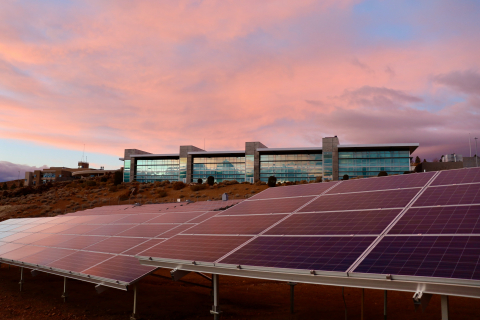EFAMA reacted to the Renewed Sustainable Finance Strategy published by the European Commission today.
Naïm Abou-Jaoudé, President of EFAMA, commented: “While the EU has laid out many breakthrough building blocks for sustainable finance since 2018, insufficient ESG company reporting, lack of transparency in ESG ratings and an incomplete EU Taxonomy inhibit the framework´s full market potential. The renewed strategy is rightfully addressing these policy gaps and should ensure it works in harmony with the existing policy instruments.”
EFAMA strongly supports three particular policy actions introduced by the renewed strategy:
- Enhancing the reliability and comparability of ESG ratings. ESG ratings often suffer from biases, weak correlations, lacking methodology transparency and potential conflicts of interest. A regulatory framework for ESG ratings is needed to improve their reliability and accuracy, building upon the company information disclosed under the Corporate Sustainability Reporting Directive (CSRD) and made available under the European Single Access Point. Such a framework would contribute to a common understanding of companies´ ESG performance by information users.
- Ensuring consistent integration of the double materiality perspective. The EU mandatory sustainability reporting standards should provide company disclosures against all sustainability metrics embedded in the Taxonomy’s screening criteria and SFDR Principal Adverse Impact indicators. This is essential for asset managers to make informed sustainable investment decisions and duly comply with their own legal obligations. At the same time, EFAMA welcomes the Commission´s high level ambition in developing harmonised global ESG reporting rules in international standard setting fora.
- Completion, extension and operationalisation of the EU taxonomy. As a bedrock for comparability in sustainable finance, EFAMA supports the Commission’s intentions to complete the Climate taxonomy, propose screening criteria for the remaining four environmental objectives, adopt a social taxonomy, and consider expanding the taxonomy to transitioning economic activities. Any further delays to this workstream should be avoided due to their detrimental effects on the representativeness and accuracy of taxonomy-alignment company disclosures. Related to that, EFAMA also welcomes the Commission´s announcement within the strategy to provide taxonomy reporting tools and advisory services to companies, especially SMEs.
EFAMA will continue to analyse the details of the Renewed Sustainable Finance Strategy with its members in due course.
– Ends –
For further information, please contact:
Link to the Renewed Sustainable Finance Strategy from the EU: https://ec.europa.eu/finance/docs/law/210704-communication-sustainable-finance-strategy_en.pdf
Brandon Bhatti
Hume Brophy
Daniela Haiduc
Head of Communications
+32-2-473 562 936
cc: info@efama.org
Notes to editors:
About the European Fund and Asset Management Association (EFAMA)
EFAMA, the voice of the European investment management industry, represents 28 member associations, 58 corporate members and 24 Associate Members. At end Q4 2020, total net assets of European investment funds reached EUR 18.7 trillion. These assets were managed by more than 34,300 UCITS (Undertakings for Collective Investments in Transferable Securities) and almost 29,700 AIFs (Alternative Investment Funds). At the end of Q2 2020, asset managed by European asset managers as investment funds and discretionary mandates amounted to an estimated EUR 24.9 trillion. More information available at www.efama.org.

























